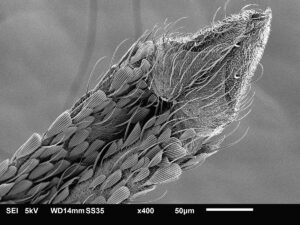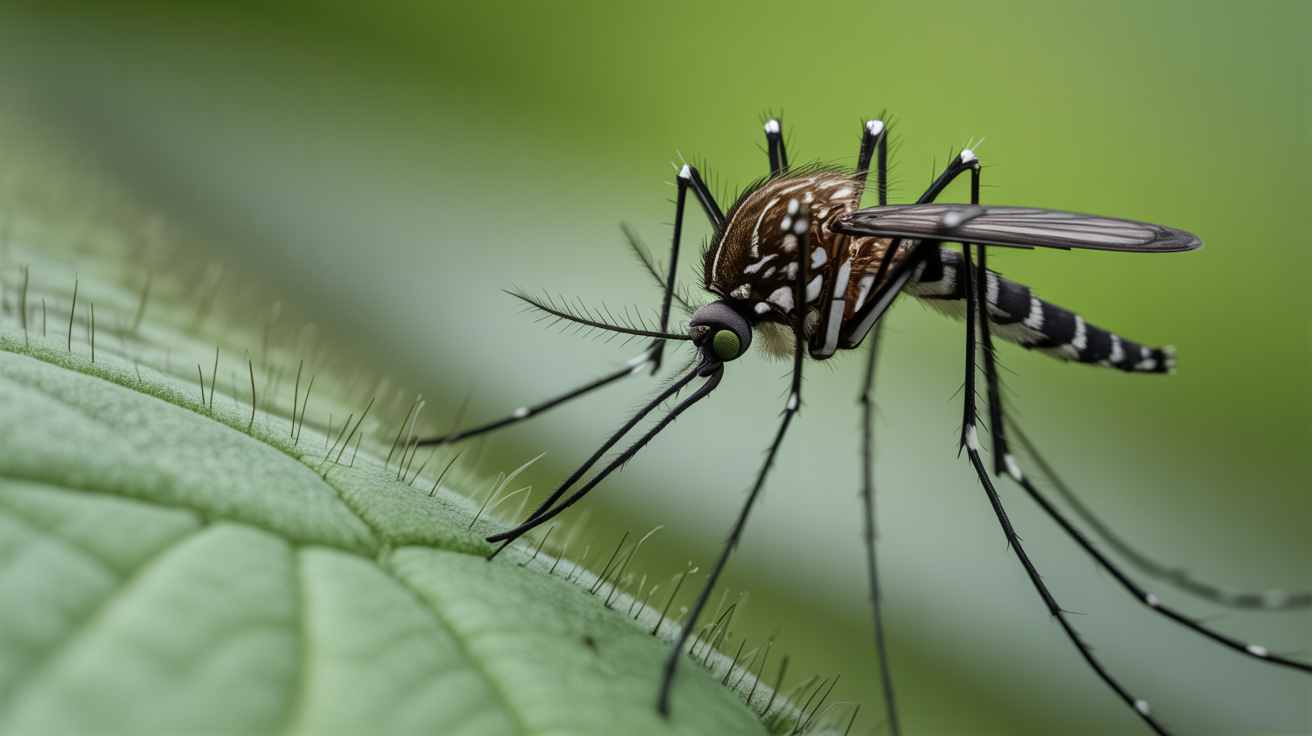Hey folks, Howie Ryder here from All Ways Exterminating. Let’s talk about one of the tiniest troublemakers that manages to cause some of the biggest headaches—mosquitoes. They’re more than just an itchy annoyance at your backyard BBQ. These little buzzers are known carriers of serious illnesses like West Nile virus, Zika virus, Dengue fever, and even Malaria in certain parts of the world. In other words, we’re not just swatting at a nuisance, we’re defending ourselves and our families from real health risks.
In this post, I’ll walk you through everything you need to know about mosquitoes—from their life cycle and habits, to prevention tips, and the best control methods that actually work. Stick with me, and by the end, you’ll be armed with practical know-how to keep your home, yard, and family safe from these pesky invaders.
🦟 About Mosquitoes
What Are Mosquitoes?
Mosquitoes are tiny flying insects, part of the same family as flies and gnats, but don’t let their size fool you—they pack a punch. With over 3,500 species worldwide, mosquitoes are found just about everywhere people live. From tropical jungles to suburban backyards right here on Long Island, these pests thrive wherever they can find warmth, water, and a host to feed on. Their preferred hangouts include wetlands, ponds, marshes, and even that clogged gutter or old birdbath sitting in the yard.
Mosquito Anatomy & Behavior
Here’s the deal: not all mosquitoes bite. Only the females are after your blood, and that’s because they need the protein to develop their eggs. Males are happy sipping nectar from plants. The females, though, are hunters—they’re most active around dawn and dusk and love to hang out near standing water, shady areas, or anywhere humans like to gather outdoors.
Mosquito on Top of Human Skin
So, how does a mosquito actually bite? Picture this: a female mosquito lands gently on your skin, then uses her needle-like mouthpart called a proboscis to pierce through. She draws blood while injecting a bit of saliva that keeps your blood from clotting. That saliva is what causes the body’s immune system to react, leaving you with that familiar itchy, red bump. Basically, the itch is your body saying, “Hey, something just invaded!”

Electron microscope image of mosquito proboscis, tube-like mouth part that is used for blood sucking.
🔄 Mosquito Life Cycle
If you really want to win the war on mosquitoes, you’ve got to understand how they live and breed. Like most pests, knowing their habits is half the battle.
Egg Stage
Everything starts with water. Female mosquitoes lay their eggs on the surface of standing water—anything from a pond or puddle to that forgotten flower pot saucer in the backyard. Some species lay eggs that float together like a little raft, while others scatter them around damp soil waiting for rain. Either way, water is the trigger that gets things going.
Larvae & Pupae
Once the eggs hatch, out come the larvae, sometimes called “wrigglers.” These little guys live in the water, feeding on microorganisms and organic matter. After a few molts, they turn into pupae, also known as “tumblers,” still hanging out in the water but no longer feeding—just getting ready for the big transformation.
Adult Mosquitoes
After a few days, the adult mosquito emerges from the pupal case and takes flight. The males usually stick around the breeding site and sip nectar, while the females start scouting for their first blood meal. Within days of feeding, a female can start laying eggs, and the whole cycle begins again.
How Long It Takes & Why It Matters
Here’s the kicker: under the right conditions, this whole process—from egg to flying adult—can happen in as little as 7 to 10 days. That means one little puddle in your yard can churn out hundreds of new mosquitoes in no time flat. That’s why eliminating standing water and treating breeding areas is such a critical part of effective mosquito control.
🏥 Trusted Sources for Mosquito Information
Now, I can tell you a lot about mosquitoes from years in the field, but when it comes to the science, research, and disease data, nobody beats the experts. That’s where the Centers for Disease Control and Prevention (CDC) comes in.
CDC Mosquito Information
The CDC has a whole section dedicated to mosquitoes—covering everything from the species you’ll find here in the U.S. to the diseases they can spread, plus prevention and treatment guidance. They provide up-to-date facts about West Nile virus, Zika, Dengue, Malaria, and other mosquito-borne illnesses, so you’re getting reliable, science-based information.
Why the CDC Is a Trusted Resource
The CDC works alongside state and local health departments, universities, and international health agencies. In other words, they’re the go-to source when it comes to tracking mosquito-borne disease and recommending the best prevention strategies. If there’s a new outbreak or updated control method, the CDC will have the details first.
Stay Informed
As much as I like to keep things simple and straight, I always encourage folks to double-check advice with official sources. Visit the CDC’s mosquito resource page for the latest facts, safety tips, and prevention strategies straight from the experts.
🛡️ Prevention and Control Strategies
Here’s the straight talk, folks: at All Ways Exterminating, we don’t actually provide mosquito treatments. But I’d be doing you a disservice if I didn’t share what works and how you can protect yourself. Mosquito control is usually a team effort between homeowners, the right repellents, and—on a larger scale—local public health agencies. Let’s break it down.
Tips to Prevent Mosquito Bites
- Wear the right clothing: Long sleeves, long pants, and light-colored fabrics make it tougher for mosquitoes to bite you.
- Use nets and screens: Keep mosquitoes out of your home by making sure your window and door screens don’t have any rips or holes.
- Avoid peak activity times: Mosquitoes are most active at dawn and dusk, so if you can, schedule your outdoor fun in the middle of the day.
- Eliminate standing water: This is a biggie. Dump out birdbaths, buckets, kiddie pools, and unclog those gutters. Even a bottle cap of water can breed mosquitoes!
Success in Mosquito Control: An Integrated Approach
No single trick knocks out mosquitoes for good. The most successful approach combines prevention, treatment, and community action. Here are some of the methods that public health experts use:
Larvicides
These are treatments applied to standing water to kill mosquito eggs and larvae before they ever grow into biting adults. Think of it as stopping the problem at the source.
Adulticides
These target flying, grown mosquitoes. Sprays and foggers can reduce adult populations, though they usually only offer short-term relief.
Population Suppression
Some communities use biological control methods, like introducing fish that eat mosquito larvae or releasing sterile male mosquitoes to reduce breeding. High-tech stuff, but it works on a big scale.
Misting Systems
You might see these in some backyards—automated systems that spray insecticide at regular intervals. While they can be effective, there are safety and environmental considerations, so they’re best discussed with a licensed professional before installing one.
Community Agencies That Manage Public Health Pests
Most mosquito control happens at the community level. Local mosquito abatement districts and county health departments monitor mosquito populations, spray public areas, and provide information to residents. Many even have hotlines or websites where you can report heavy mosquito activity.
Vector Expedited Review Voucher (VERV) Program
This is a program run by the FDA that helps fast-track the approval of new treatments and products designed to fight mosquito-borne diseases. In plain English: it helps get new tools out there quicker when public health needs them most.
🧴 Mosquito Repellents
Alright folks, let’s talk about the tool that just about everybody can use—repellents. Since I don’t do mosquito treatments myself, I always recommend my neighbors stock up on a good repellent. The right product can make the difference between an enjoyable summer evening and being eaten alive in your own backyard.
Types of Repellents
- DEET: The classic and most widely used. It’s been around since the 1940s and is still one of the most effective options out there. Higher concentrations last longer, but most folks are good with 20–30%.
- Picaridin: A newer alternative to DEET—odorless, less greasy, and just as effective. Great for kids and anyone sensitive to DEET’s smell or feel.
- Oil of Lemon Eucalyptus: Plant-based and EPA-approved. It’s natural but still packs a punch. Just keep in mind it’s not recommended for kids under 3 years old.
- IR3535: Found in many sunscreen-repellent combo products. Gentle and effective, especially for shorter outdoor activities.
- Natural/herbal repellents: Things like citronella candles, lavender oils, and peppermint sprays. They smell great and help a little, but they don’t last long and won’t protect you like the big names above.
Using Repellent Products to Protect Against Mosquito-Borne Illnesses
A good repellent doesn’t just stop bites—it helps reduce your risk of catching diseases like West Nile or Zika. Apply before you head outdoors, especially if you’ll be near water or out around dawn or dusk when mosquitoes are busiest.
How to Use Repellents Safely
- Skin vs. clothing: Most repellents can go right on skin, but spraying them on clothing gives extra protection. Just avoid plastics and gear that might react with certain chemicals.
- Children: For kids, use lower concentrations of DEET (10–30%). Never apply directly on their hands or near eyes and mouth—spray on your hands first, then rub it on them.
- Pregnant women: The CDC says repellents like DEET and picaridin are safe when used as directed, which is especially important since mosquito-borne diseases can be extra risky during pregnancy.
Find the Repellent That Is Right for You
Different repellents work better for different situations:
- Backyard BBQ: A mid-strength DEET or picaridin spray is usually plenty.
- Camping or hiking: Go with a higher-concentration product for long-lasting protection.
- Travel abroad: If you’re headed somewhere with malaria or dengue risk, talk to your doctor and use the strongest, longest-lasting repellent you can find.
Bottom line: the best repellent is the one you’ll actually use—so pick what feels comfortable and make it part of your outdoor routine.
Conclusion
At the end of the day, mosquitoes may be small, but they sure know how to cause big problems. The good news? With the right mix of prevention, repellents, and support from your local public health agencies, you can cut way down on bites and lower your risk of mosquito-borne illnesses. Remember—most of the battle starts right in your own backyard by getting rid of standing water and protecting yourself when you’re outdoors.
If you ever need more info, I always recommend checking the CDC’s mosquito resources for trusted, science-backed guidance. And while I don’t handle mosquitoes personally, you can count on me here at All Ways Exterminating for help with just about every other pest that tries to move into your home or yard. From ants and roaches to rodents and termites—I’ve got your back.
Stay protected, enjoy your time outside, and don’t let the bugs bug ya!



0 Comments